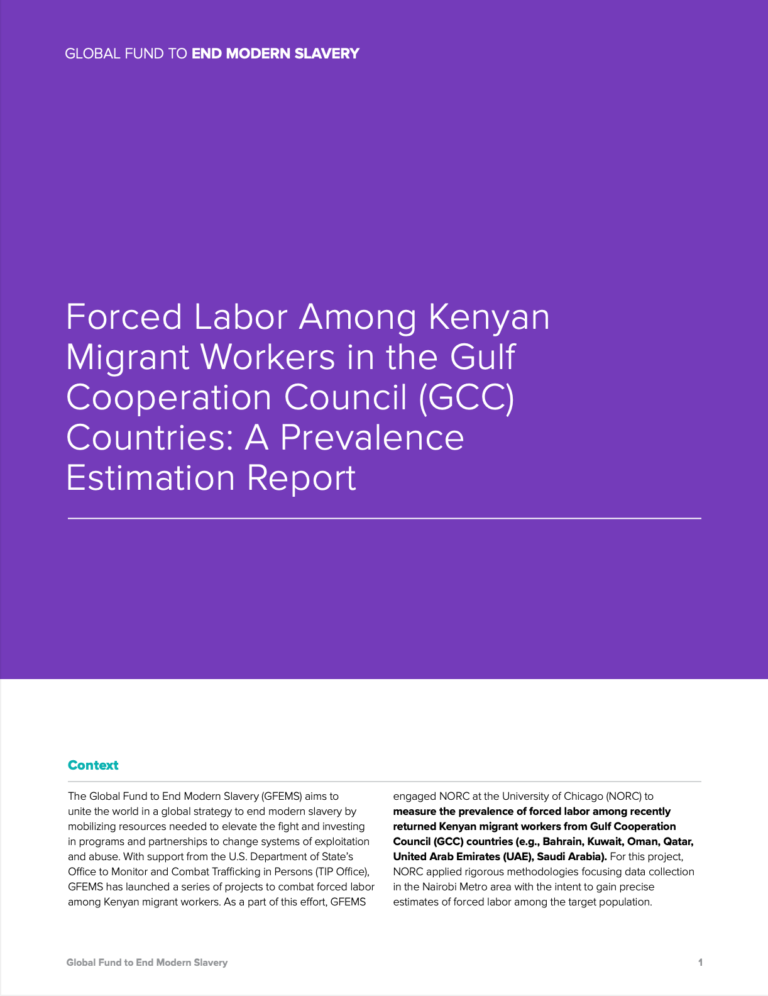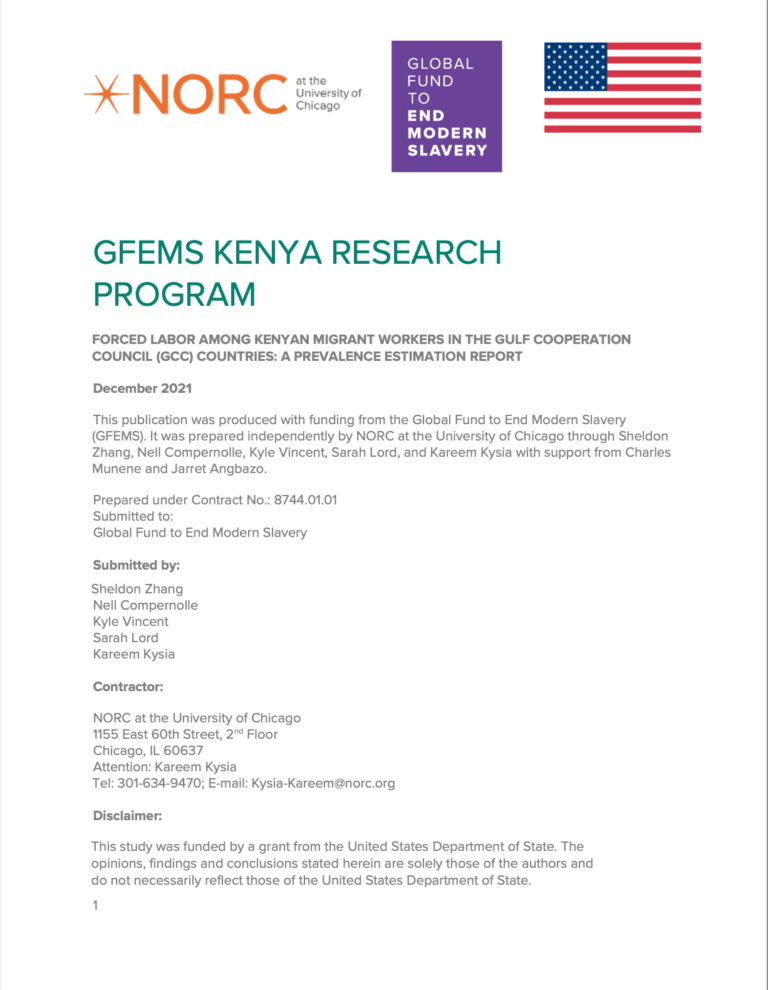GFEMS has launched a series of projects to combat forced labor among Kenyan migrant workers. As a part of this effort, GFEMS engaged NORC to measure the prevalence of forced labor among recently returned Kenyan migrant workers from Gulf Cooperation Council (GCC) countries (e.g., Bahrain, Kuwait, Oman, Qatar, United Arab Emirates (UAE), Saudi Arabia).
There were extensive forced labor violations among surveyed respondents. We found that 98.73% of the sample, or 1,007 out of the total 1,020 respondents, reported having experienced at least one of the four categories of workplace labor abuses, or were unable to exit an abusive employment situation. We estimated the rate of forced labor among the Kenyan migrant labor population in GCC countries to be 98.24%. In essence, practically everyone heading to the GCC as a migrant worker from Kenya would become a victim of forced labor at some point.


